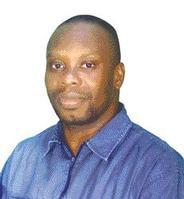
Vernon Daley
Now, here's a question that has troubled the minds of many for a long time. What qualifies a person to call himself a journalist?
It has always been a very difficult question to answer. In Jamaica and elsewhere, qualification for entry into the 'profession' is not well defined and the general public has a tendency to assign the title to anyone who writes in the newspapers or carries on any form of discussion on radio or TV.
The journalism question has become even more difficult to answer with the development of the Internet and its spawning of the so-called Internet bloggers who are creating their own news, independent of mainstream media.
Should a person be recognised as a journalist by set academic qualifications or is the title to be attained by a series of trial and error and learning and unlearning on the job?
Settle the matter
Earlier this month Brazil's Superior Court of Justice sought to settle the matter when it made a scandalous ruling that journalists must have a university degree in communications to be allowed to do their job.
Journalists' associations in that country have apparently welcomed the decision as a move in the right direction to ensure higher standards of competence in the profession. But that endorsement is almost like saying thanks to the man who has just chopped off your legs.
There is no doubt society has an interest in trained and well-educated journalists. The question is whether a university degree is any guarantee of producing a newsman of high calibre.
Right here in Jamaica some of our best known and most highly intelligent journalists are people who don't have a university education. John Maxwell and Wilmot Perkins remain two of the sharpest journalists in this country and yet, so far as I'm aware, neither has a university degree.
Above all else, the recent ruling in Brazil is a violation of the basic and fundamental human right of freedom of expression. To require a person to possess a university degree before he can gather and exchange information seems to put a prior restraint on that right.
The court in Brazil has walked the same path as the Venezuela Supreme Court which in July ruled that journalists must be licensed before they can go about the business of collecting and disseminating news.
Both Brazil and Venezuela are signatories to the American Convention on Human Rights, which specifically protects freedom of thought and expression. But the judiciary in those countries seems to have paid little regard to that fact.
Jealously guarded
Hopefully, this rough wind blowing in South America never makes its way into the Caribbean, where press freedom and the general freedom of expression have been more jealously guarded.
High-level training of journalists is desirable, whether this is done on the job or at university. However, any kind of licensing or state-regulated qualification as to who is a fit and proper person to be watchdog over the affairs of a country is open to abuse, and it's a pity the media fraternity in Brazil has been so complicit in this hijacking of press freedom.
Vernon Daley is a journalist, Jamaica editor for the CMC, and part-time lecturer in media law at the UWI. Send comments to: vernon.daley@gmail.com.

